I tried the world’s first AR smart binoculars – and they’re a game-changer for adventure tech lovers
The cleverest binoculars I’ve ever used
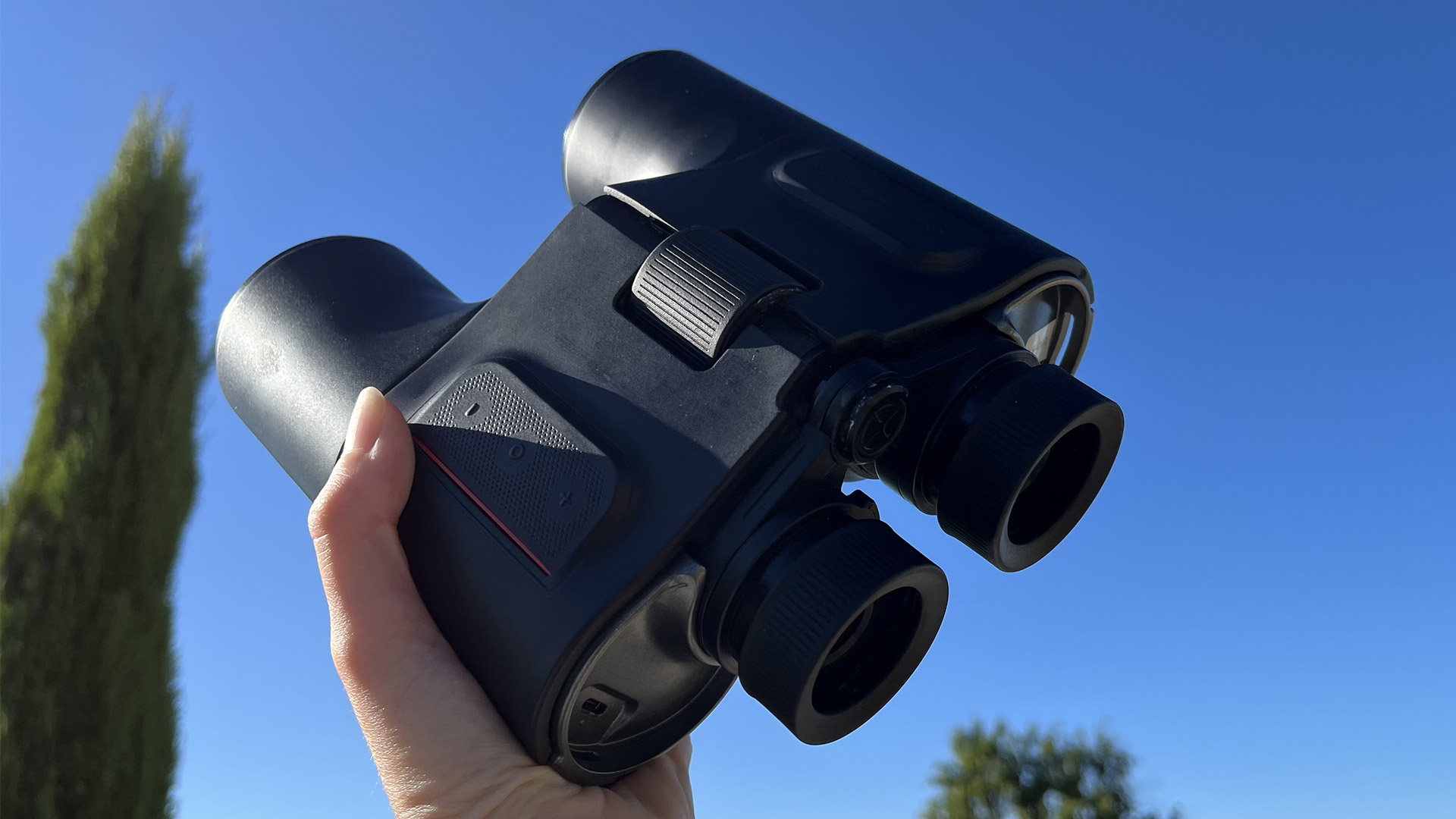
Sign up for breaking news, reviews, opinion, top tech deals, and more.
You are now subscribed
Your newsletter sign-up was successful
When I heard about the world's first smart binoculars with augmented reality (AR), I was at CES, a technology mecca filled with so many gadgets and gizmos that I never got the chance to see the product that won an innovation award in 2025. Fast forward nine months and I've finally had the chance to try them out – even if they’re still just a prototype (us tech journalists will do anything to be the first to get our hands on new shiny plastic).
At first glance, they may look and feel like any other premium pair of binoculars, but the Envision smart binoculars proved to be anything but ordinary. The features I got to test out gave me a glimpse into what they are already capable of and it seems like the team at Unistellar are on track to deliver on the promises they’ve set out so far, like overlaying the name and distance of mountain peaks or guiding you to thousands of different celestial objects in the night sky.
Even just with these two main functionalities, the difference that having AR makes to activities like hiking and stargazing is like night and day (and I mean that both literally and figuratively) – it's like you go from analog to futuristic in an instant. Being able to see the distance between you and a statue, instantly know the names of surrounding landmarks or lock onto a star so that you can guide a fellow stargazer to it without fumbling for your phone or a guide book is a game-changer for taking out the extra fuss in each of these scenarios.
Getting to grips with the world's first AR smart binoculars
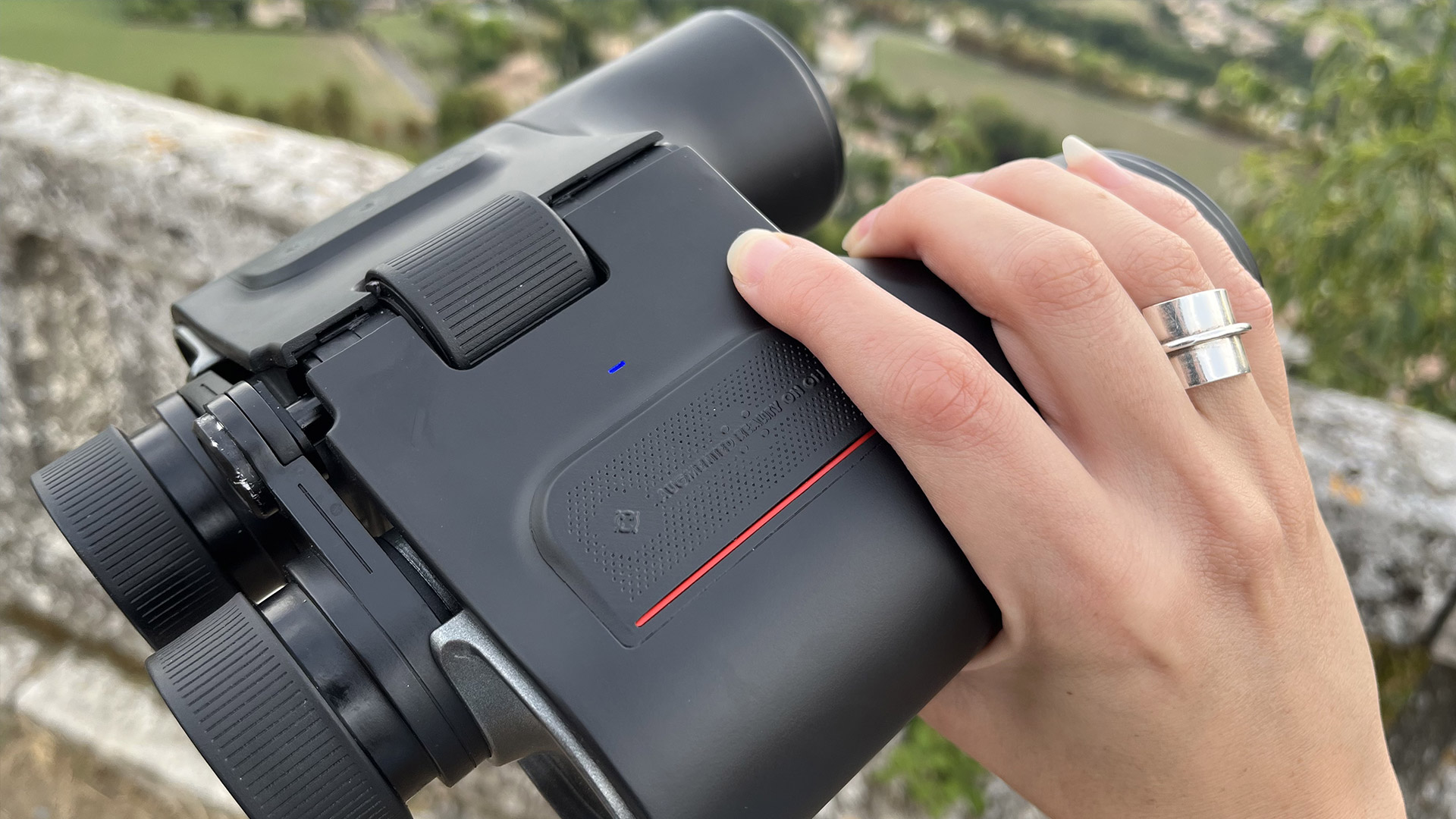
The Envision 10x50 smart binoculars have a 6 degree field of view (FOV) and are packed with tech. They use GPS, tracking sensors and augmented reality projection with real-time processing, which all work together to create a seamless heads up display (HUD) that overlays text and graphics right into your eyepiece. The overlays appear in the right eyepiece only (but you see the projection in both when you look through the binoculars), showing continuous typographic contouring lines atop mountain peaks and AR vectors for distance or altitude.
This all comes to a bulky weight of 1.2kg, and that's despite using lightweight materials like aluminum and plastic to offset the heavier steel and lens components. Such a heavy build does mean that they'll offer greater stability (and there is a monopod), though, the downside is they will be less portable for carrying around for long stints. Besides the build, I liked the sleek design of the Envision. They're wrapped in a grippy rubber material and have sturdy features for adjusting the eyepiece distance or centering the focus dial, making the binoculars intuitive to use.
Speaking of the design, there are only a few physical buttons on the binoculars themselves. There's one on the right that lets you lock your target in place for perfect alignment, while the same button on the left lets you cycle through six smart modes, including 'Smart Scouting' to see a 3D map of landmarks, 'Guided Navigation' to enable AR vectors to find a selected object, 'Target-Lock Sharing' to keep an object fixed in your view, 'Day and Night Vision' for optimized observation, and 'Disconnect Mode' for when you want to go old school and turn off the AR.
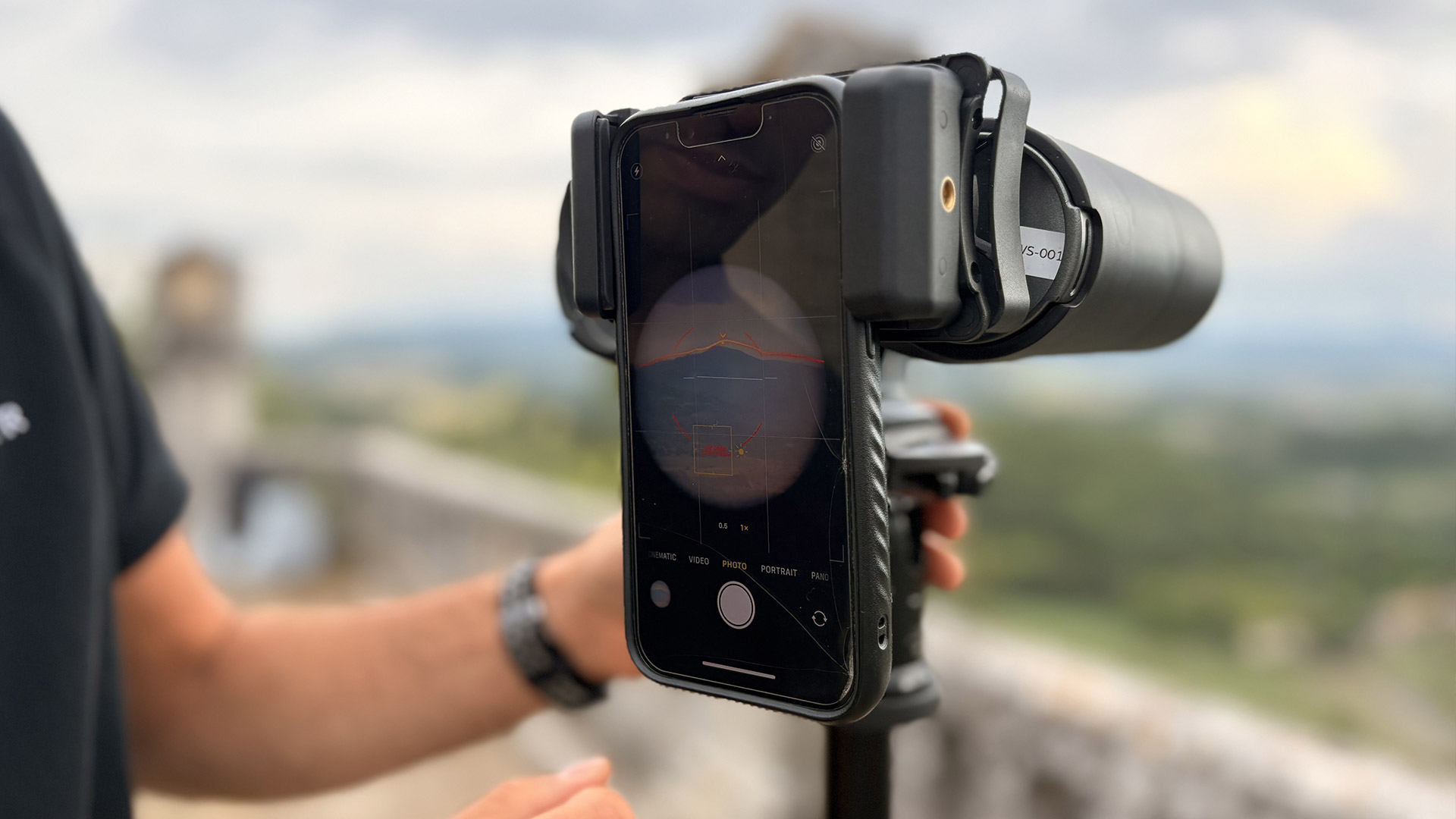
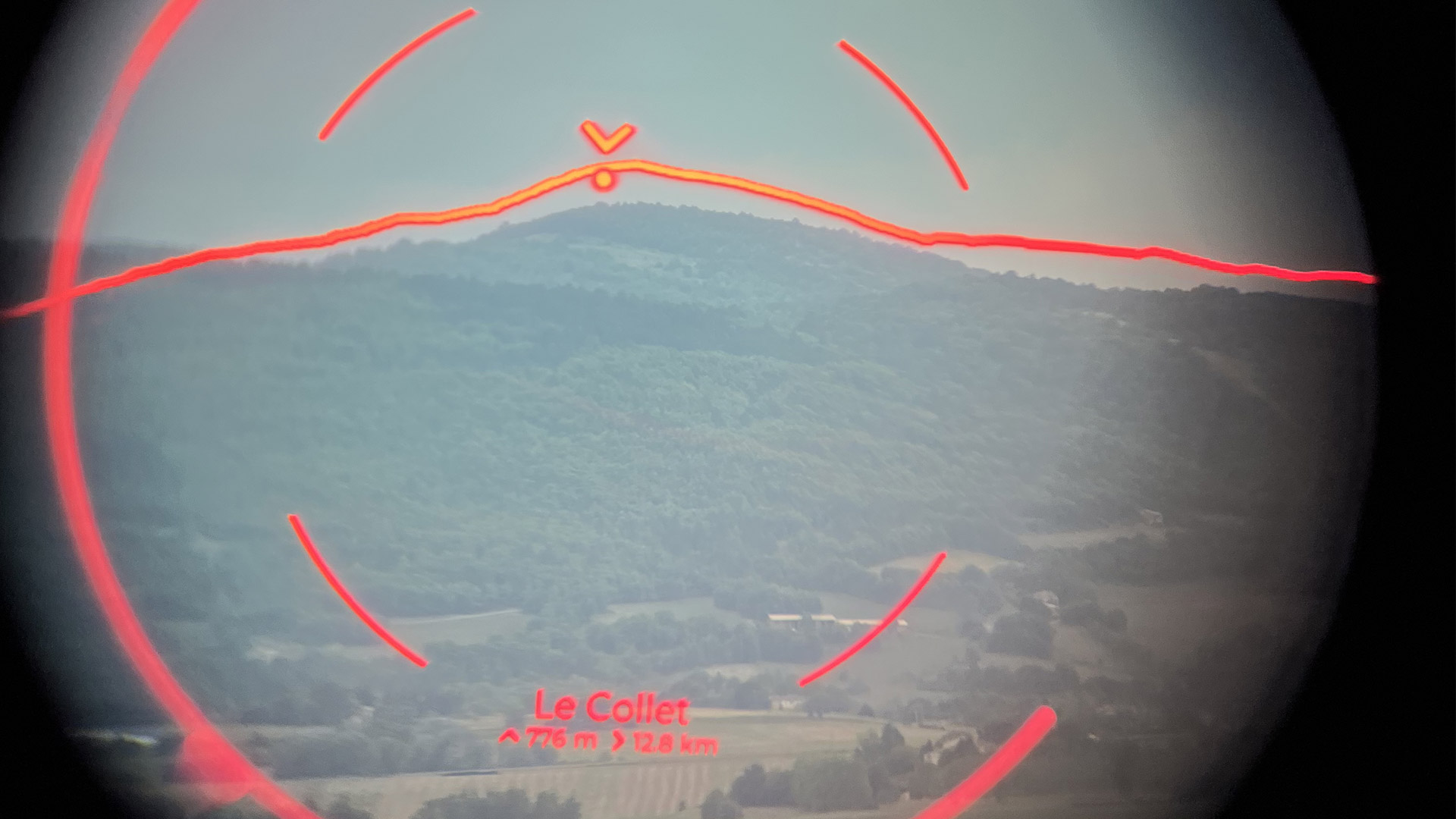
Like the only other smart binoculars on the market – the Swarovski Optik AX Visio, which use AI to identify birds and other wildlife – the Envision will have a supporting app to see what you’re looking at. This will also be crucial for updating the 3D maps in new areas you visit to get the landmarks and celestial objects available, which can also be downloaded so you can use it offline.
Sign up for breaking news, reviews, opinion, top tech deals, and more.
I didn’t get to try this, so I still have questions around how the companion app will look, whether it will be easy to use, if you'll be able to use your phone or tablet as a remote for accessing features, how much customization it will offer, whether there'll be a software development kit (SDK) for tinkerers, what the guided tours look like, how often the database will be updated, and what amount of data storage it takes up?
Of course any initial bugbears could all be fixed with future software updates, which is where Unistellar promises that we'll see new data features to highlight. Two possible use cases I spoke to one of the founders of Unistellar, Laurent Marfisi (CEO), about were the possibility of being able to track planes and even boats while out at sea. As a keen sailor I know that binoculars are an essential accessory for any ocean voyage, so I’m particularly excited for these upgrades as it would make identifying the name of vessels so much easier.
The good news? It sounds like expanding the datasets is very much part of the update cycle that they're planning out. At launch, there will be over a million different points of interest on Earth that you'll be able to target, including landmarks (like statues), hiking trails, water sources, shelters and more. For night time viewing, there are 200,000 stars plus over 1,000 sky objects that you'll be able to track.
When will the Envision smart binoculars be out in the wild?
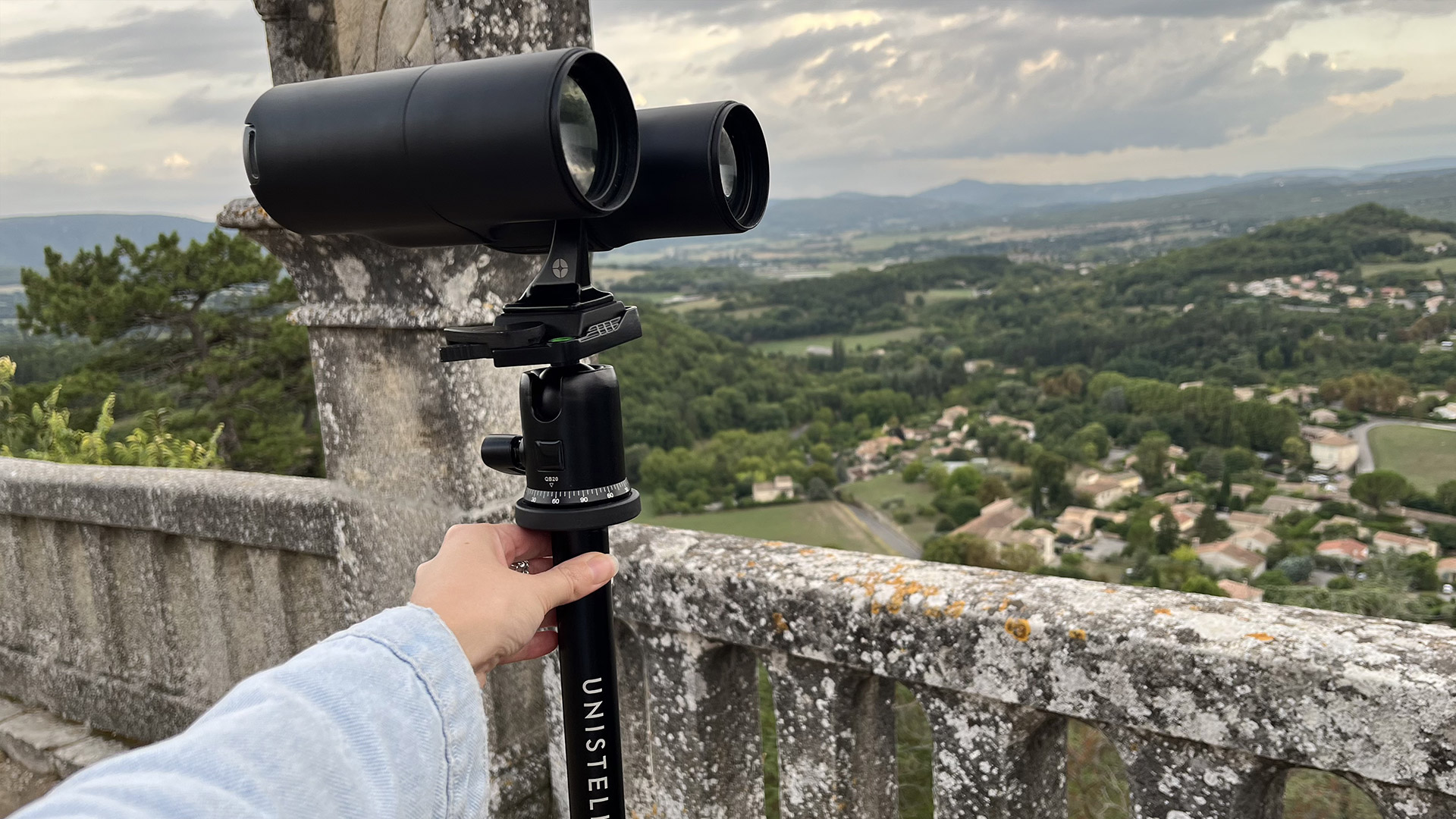
You’re probably wondering by now how much this is all going to cost and it’s definitely more than the standard amount you’d pay for binoculars. However, if you’re in the premium budget space than these might surprise you; at $1499 in the US and £1399 in the UK, they’re cheaper than the only other pair of smart binoculars on the market, which cost $5,499.00 (US) or £3,890 (UK) for reference.
You can save some money, though, by pre-ordering on the Unistellar website from October 1, 2025. This will not only get you a $500 / £500 discount, making the price $999 in the US and £899 in the UK, but you'll also be the first to get your hands on a pair sooner than waiting for it to hit the retail shelves, which won't be until sometime in 2027. That means you could have the Envision smart binoculars by as soon as mid next year.
Not sure who Unistellar are? They're a French startup behind some of the best smart telescopes I’ve ever used. They have several patented technologies that make them a standout in the market, like the ability to automatically track objects in the night sky and even cut through light pollution. From what I’ve seen, they really know their stuff, making their latest push into binoculars a really smart move. And I'm not the only one that's excited to see what they do next, as the Envision crowdfunding campaign has been a big success so far.
If you don't want to miss out on pre-ordering a pair of the Envision smart binoculars, head over to the Unistellar website to learn more.
You might also like

Amelia became the Senior Editor for Home Entertainment at TechRadar in the UK in April 2023. With a background of more than eight years in tech and finance publishing, she's now leading our coverage to bring you a fresh perspective on everything to do with TV and audio. When she's not tinkering with the latest gadgets and gizmos in the ever-evolving world of home entertainment, you’ll find her watching movies, taking pictures and travelling.
You must confirm your public display name before commenting
Please logout and then login again, you will then be prompted to enter your display name.